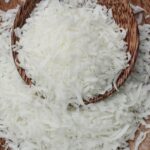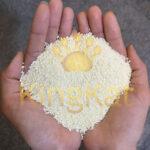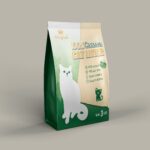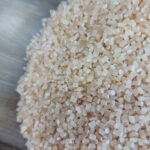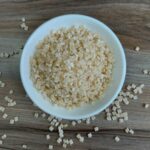CASHEW NUT SHELL OIL
Tapioca starch, derived from the roots of the cassava plant, has long been a versatile ingredient in various industries. In the pharmaceutical sector, its unique properties make it an ideal component for a range of applications. From serving as an effective binder in tablets to being a sustainable choice for production, tapioca starch offers numerous benefits. Below, we explore six key advantages of tapioca starch in the pharmaceutical industry.

Table of Contents
Toggle1. An Effective Binder in Tablet Production
Tapioca starch is widely used as a binder in the production of tablets. Binders are essential for holding the ingredients together, providing tablets with their necessary hardness and structural integrity. Tapioca starch’s natural adhesive properties make it particularly effective in this role, ensuring that tablets retain their shape and remain intact during handling, packaging, and transportation. This not only enhances the quality of the end product but also ensures consistency in dosage.
2. A Superior Filler for Capsules and Tablets
In the formulation of capsules and tablets, fillers play a crucial role in achieving the desired size and weight. Tapioca starch is an excellent choice for this purpose due to its smooth texture and neutral taste. It provides the necessary bulk without altering the active ingredients’ properties, making it suitable for a wide range of formulations. Additionally, the lightweight nature of tapioca starch means that it can be used without significantly increasing the weight of the final product, making it easier for consumers to swallow.
3. Disintegration Agent for Enhanced Drug Release
One of the critical requirements for oral pharmaceutical products is that they must dissolve or disintegrate within the body for effective absorption. Tapioca starch is known for its disintegration properties, which help tablets break down quickly once they reach the stomach. Its ability to absorb moisture and swell ensures that the tablets dissolve at a controlled rate, allowing for the proper release of the active ingredients. This is especially beneficial for time-sensitive medications where precise release timing is essential.
4. Hypoallergenic and Gluten-Free
As more consumers become conscious of allergens and dietary restrictions, the demand for hypoallergenic and gluten-free products has increased. Tapioca starch is naturally gluten-free and hypoallergenic, making it an ideal choice for pharmaceutical applications where patient safety and comfort are priorities. Unlike some other starches, tapioca starch does not contain proteins that could trigger allergic reactions, making it a safe alternative for individuals with gluten intolerance or other sensitivities.
5. Environmentally Friendly and Sustainable Source
Sustainability is an increasingly important consideration in the pharmaceutical industry, with companies seeking to minimize their environmental impact. Tapioca starch is derived from cassava, a plant that is resilient and grows well in a variety of climates with minimal chemical inputs. Its production process has a lower environmental footprint compared to some other starches, making it a more sustainable option. Choosing tapioca starch allows pharmaceutical companies to align with eco-friendly practices, appealing to consumers who value green and responsible manufacturing.
6. Cost-Effective Option for Manufacturers
The affordability of tapioca starch makes it an attractive option for pharmaceutical manufacturers. Its availability in large quantities at a relatively low cost helps keep production expenses manageable, which is particularly important in markets where price sensitivity is high. Moreover, its versatility across various stages of production—from binding to disintegration—means that manufacturers can use a single ingredient for multiple purposes, further optimizing costs and streamlining the production process.
Conclusion
Tapioca starch offers a range of advantages for the pharmaceutical industry, from its role as a binder and filler in tablets and capsules to its environmental benefits and cost-effectiveness. Its natural properties, such as rapid disintegration and hypoallergenic profile, make it an invaluable ingredient for formulating safe, effective, and high-quality medications. As the demand for sustainable and consumer-friendly products continues to grow, the importance of tapioca starch in the pharmaceutical industry is only set to increase.
For pharmaceutical companies looking to enhance their product formulations and meet market demands, tapioca starch is a solution that combines practicality with sustainability. As a natural ingredient with proven benefits, it’s no wonder that tapioca starch has become a staple in the industry. Embrace the advantages of tapioca starch and discover how it can elevate your pharmaceutical products today.



